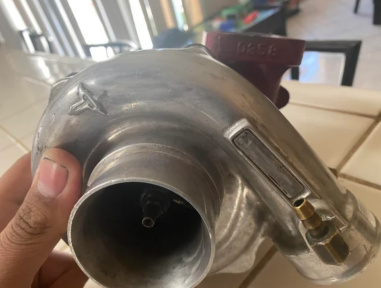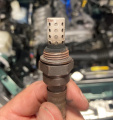
Turbocharging is now ubiquitous and nearly indispensable, squeezing performance out of the tiniest engines that would have been unimaginable just twenty years ago. Turbo engines generally lead the way in terms of consumption and emission values.
However, the turbocharger is also a potential trouble area that requires additional attention. The following tips can help prevent expensive turbocharger damage.
Observe Warm-Up and Cool-Down Phases
A classic point of discussion is the strict observance of warm-up and cool-down phases. It's always important to gently bring the engine to operating temperature, whether it's turbocharged or not.
For turbo engines, however, the cool-down phase is particularly crucial. Unlike naturally aspirated engines, turning off the engine after a full-throttle drive can damage the turbocharger: The oil supply is stopped, causing the oil in the heated turbocharger to burn. The resulting carbon deposits can clog the oil supply lines, leading to oil starvation and impending turbocharger damage.
If you've been driving at full throttle on the highway and stop at the next rest area, it's advisable to let the engine run for at least 1-2 minutes to allow the turbocharger to cool down. A better effect is achieved by easing off the throttle several miles before stopping. This requires a bit of discipline but is worth the small extra effort and also saves money.
Regular Maintenance is Key

With regular maintenance, the turbocharger should last as long as the engine itself. Good quality engine oil is particularly important: If you've been using cheaper varieties, it's time to treat your engine (and thus the turbocharger) to high-quality engine oil. Moreover, oil changes should be performed more frequently than in engines without turbochargers.
If you primarily drive short distances in the city, more frequent oil changes are also necessary. The increased fuel entry can lead to oil starvation, which can damage not only the turbocharger but the entire engine.
See Also:
Same articles

Renting a Car: What Do You Need to Know
GuidesEmbarking on the journey of renting a car for the first time can be akin to navigating uncharted waters. It's a path many have traversed, driven by the need for convenience, exploration, or...

Fuel Additives For Petrol And Diesel Engines - What Are Pros And Cons?
GuidesIn theory, the use of fuel additives is not necessary for most engines. However, this only applies if the engine operates under ideal conditions, meaning it always has access to clean...

Bad Oxygen Sensor - What Are The Symptoms And Causes?
GuidesThe oxygen sensor has the task of providing the engine control unit with information about the residual oxygen content in the exhaust gases. If this sensor malfunctions, fuel consumption can...

